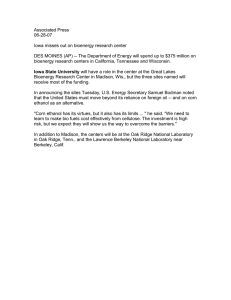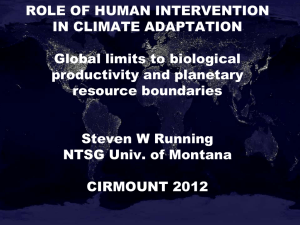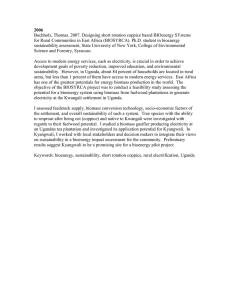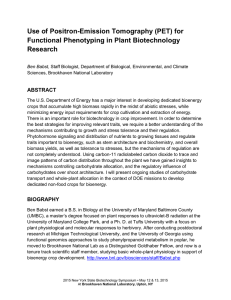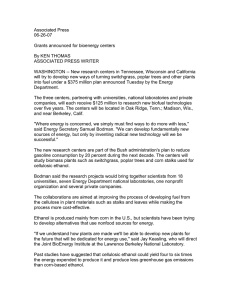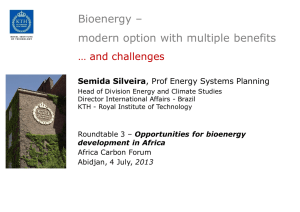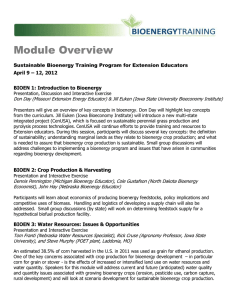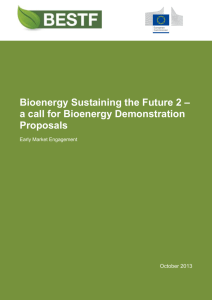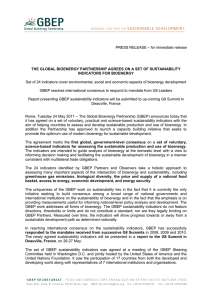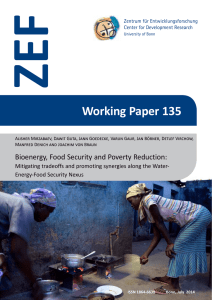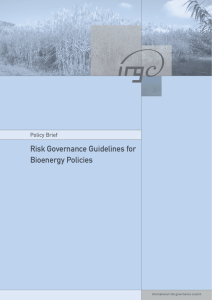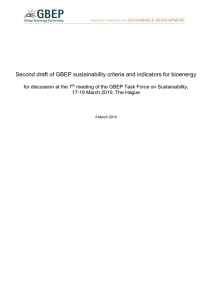Improving the sustainability of bioenergy via Agro-Environmental Zoning South-South Lessons Emmanuel Ackom
advertisement
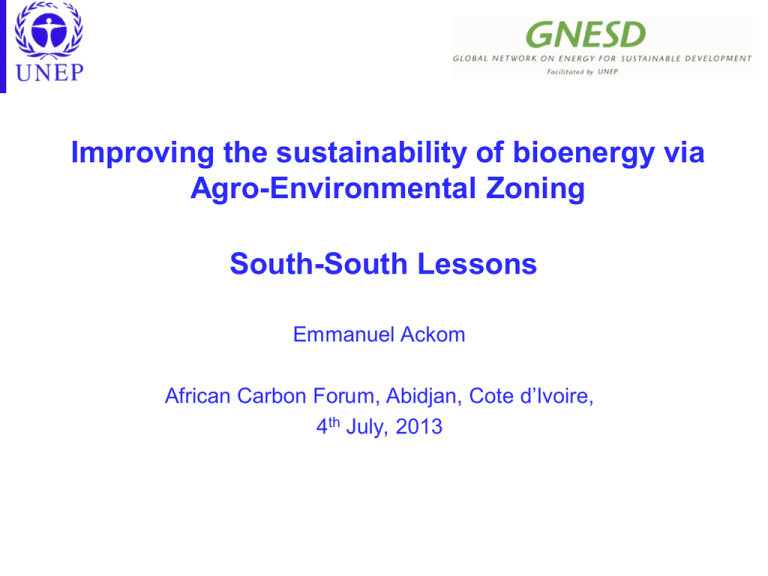
Improving the sustainability of bioenergy via Agro-Environmental Zoning South-South Lessons Emmanuel Ackom African Carbon Forum, Abidjan, Cote d’Ivoire, 4th July, 2013 Major ENVIRONMENTAL criteria • • • • • • • • Net GHG balances Land use change Net energy balances Water use Biodiversity Soil quality & health Pollution (air, water, soil) etc Sources: Hill et. al, 2006; Searchinger et. al, 2008; Williams et. al., 2009; Ackom et. al., 2010 Major SOCIAL principle & criteria • Avoidance of competition with food • Consultation & communication with local communities • • • Compliance with national laws and ratified international laws on employment conditions and workers’ rights Bioenergy production shall not take place on contested lands. e.t.c…. Sources: ILO, RSB, GBEP Brazil Agro-ecological sugarcane production Key Criteria: • Environmental aspects • Exclusion of pristine ecosystem i.e. Amazon and Pantanal biomes, Upper Paraguay River Basin. • Avoiding conflict with food production • Preference for direct precipitation/rainfall over full irrigation • Degraded pastures Agro-ecological mapping for bioenergy crop: Senegal Agro-ecological mapping for bioenergy crops: Kenya Adapted from Muok et. al. 2010. Key messages • • • Agro-environmental zonings – should be the likely condition for issuing permits/license for energy crop production Agro-ecological zonings avoids competition of land from food and fuel purposes, as well as the prevention of the use of pristine ecosystems for bioenergy production. Agro-ecological zonings in first mover countries provide invaluable lessons for consideration and learning for other African countries. – • • e.g. COGEN Africa (with UNEP, GEF and AfDB). Bioenergy derived from sugar cane and non-food based feedstock including residues are often preferred options Comprehensive bioenergy sustainability policy integrated into national development plans. Thank you! questions and comments Emmanuel Ackom GNESD/ UNEP Risø Centre email: emac@dtu.dk www.gnesd.org www.uneprisoe.org
